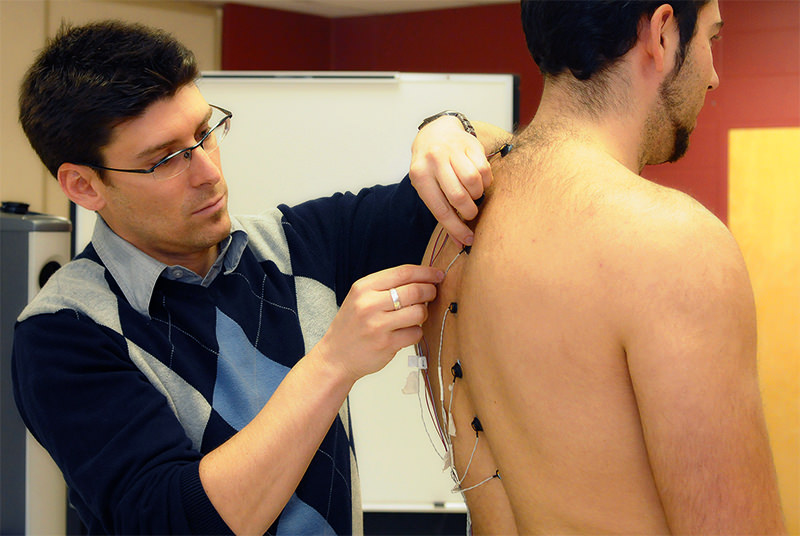Overview
 The Research Group on Neuromusculoskeletal Disorders (GRAN) is composed of researchers and students of varied and complementary expertise from several disciplines (kinesiology, chiropractic, neuroscience, engineering, podiatry, medicine).
The Research Group on Neuromusculoskeletal Disorders (GRAN) is composed of researchers and students of varied and complementary expertise from several disciplines (kinesiology, chiropractic, neuroscience, engineering, podiatry, medicine).
The GRAN research team has set as its main scientific objective to study and document various issues related neuromusculoskeletal pathologies while addressing the evaluation of the effectiveness of various clinical interventions. Members of the GRAN are particularly interested in people with chronic or disabling neuromusculoskeletal conditions for which conventional health services have not improved their condition.
Neuromusculoskeletal disorders are a group of diverse conditions for which pathophysiological mechanisms may vary, but for which the presence of pain and physical disability are characteristic.
The prevalence of many of these conditions increases significantly with age, and many are associated with sedentary lifestyle and numerous comorbidities attached to them (e.g. obesity, depression, etc.). Consequently, the GRAN research program unfolds along two main lines of research: axis 1 - Functional assessment of patients with neuromusculoskeletal disorders, and axis 2 - Clinical intervention for patients with neuromusculoskeletal disorders. These two main lines of research have as a general goal the improvement of clinical follow-up and of functional capabilities of individuals struggling with chronic neuromusculoskeletal conditions and debilitating. The achievement of this overall objective is greatly facilitated by the GRAN structure, which promotes close collaboration between researchers and clinicians (kinesiologists, chiropractors, podiatrists and physicians). The GRAN’s research program also includes a component that transcends the group's lines of research and that is dedicated to the study of knowledge transfer strategies. This unique expertise enables the development, implementation and use of clinical assessment and intervention protocols based on evidence, and whose objectives are mainly oriented towards improving the functional capacity of individuals struggling with chronic and disabling neuromusculoskeletal condition.
